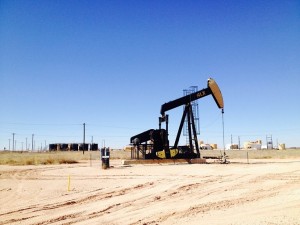 According to experts, generally fracking will not affect the quality of your drinking water, but Stanford Professor Rob Jackson, a professor of Earth system science at Stanford University, and a senior fellow at the Stanford Woods Institute for the Environment and at the Precourt Institute for Energy says that there are exceptions to that rule.
According to experts, generally fracking will not affect the quality of your drinking water, but Stanford Professor Rob Jackson, a professor of Earth system science at Stanford University, and a senior fellow at the Stanford Woods Institute for the Environment and at the Precourt Institute for Energy says that there are exceptions to that rule.
Jackson, who is also an expert on the health impacts of fossil fuels, and who has studied groundwater quality at oil and gas fields across the US and presented his findings at the annual meeting of the American Association for the Advancement of Science (AAAS).
Jackson said, “We have found a number of homes near active wells with very high levels of natural gas in the tap water. Where the chemistry suggests contamination, the problem usually lies with the integrity of the well, either the cementing used to isolate it from the surrounding rock and water or the steel casing that allows gas and oil to flow upwards.”
According to Jackson, most of the documented of cases of groundwater contamination were due to poorly constructed wells which can allow gases to move up and down freely and contaminate the drinking-water supply.
Apart from structural issues, there are also various problems associated with fracking such as the fact that wells are not always installed deep enough; some companies frack directly into shallow freshwater aquifers, at depths of less than a thousand metres below the surface. This results in chemicals being injected directly into drinking water sources.
Contamination of drinking water sources is far more likely to occur when there is not sufficient separation between the fracking activity and the drinking-water source. There have even been cases where people have set the water coming from their taps alight.
If you live anywhere near a fracking site, it is a far safer bet to invest in a water cooler that is fitted with a good filter and will ensure that your drinking water is free from pollutants and safe to drink.





